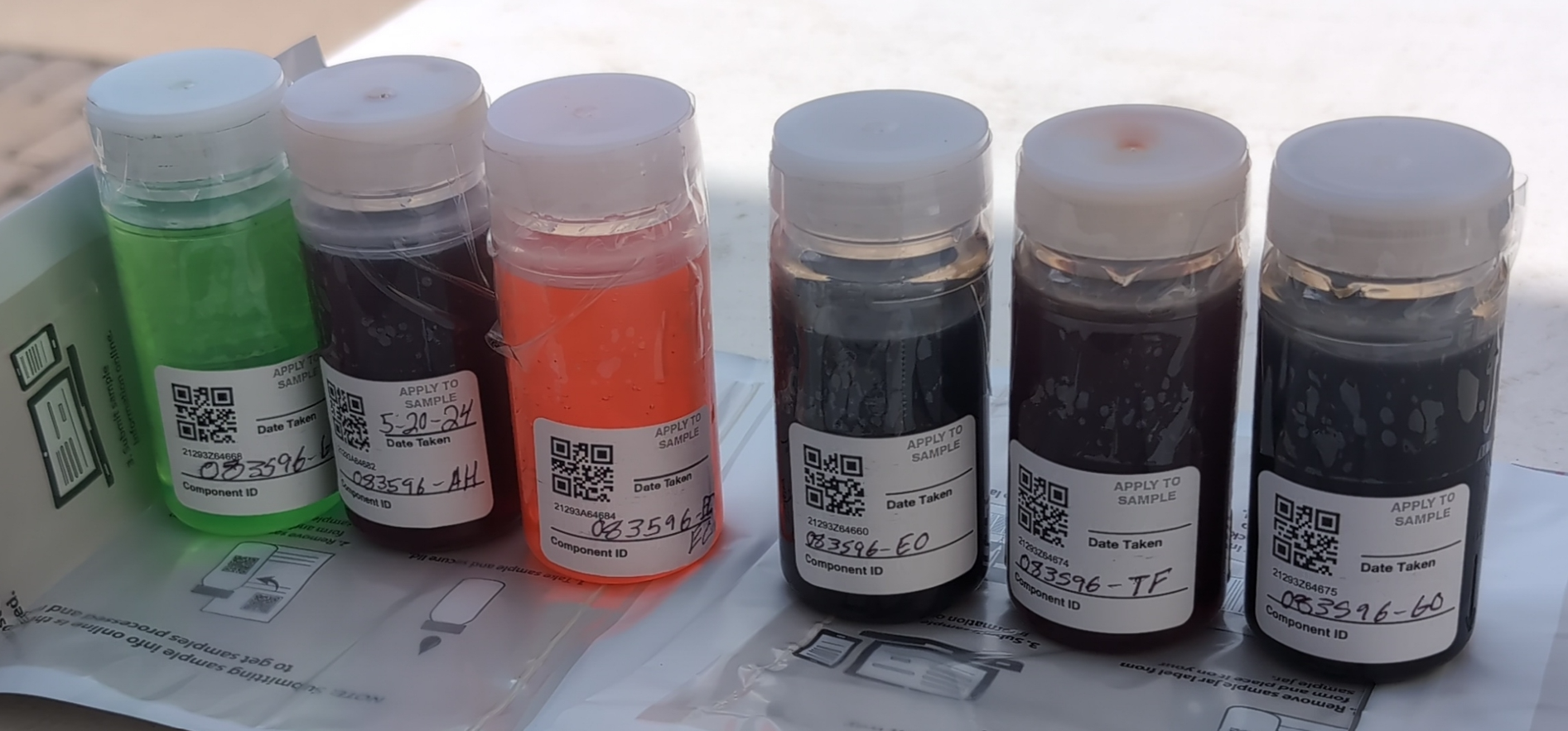By Fluid Testing your RV’s lubricants and coolants, we can find out what’s happening inside the engine, transmission, and coolant system without disassembly. Think of it as a “blood test” for the engine, transmission, coolant system, and more. We offer a comprehensive fluids analysis as an additional service for your motorhome and RV inspections. Testing fluids after purchasing the RV should be a part of your ongoing care program for the RV. After the inspection, JG Lubricant Services laboratories analyze and prepare reports on the fluid samples sent to them. The results will be provided as a PDF document. The following downloadable documents will help you understand your test results;
During the inspection, a motorhome should undergo a full-spectrum fluids analysis. The initial fluid samples during the inspection will set a baseline for future fluid sample tests. JG Lubricant Services keeps the test history of each vehicle fluid analysis. This lets us compare metrics throughout your RV life to spot better changes or abnormalities that may require attention.
Owners of RVs and towing vehicles should periodically test the oils in their engines, transmissions, differentials, generators, and coolant systems. The fluid lab tests for oxidation, viscosity change, and contamination signs.
Fluid Sample Pricing with a MotorHome RV Inspection:
1 Sample – $100
2 Samples – $185
3 Samples – $270
4 Samples – $355
5 Samples – $440
6 Samples – $525
Note that the rates above are available only when combined with an RV Inspection Agreement.
RV Fluid Test Findings
Over three years of RV fluid sampling, what was found is shown in the table below. This data includes samples from manufacturers and MotoHome types (A, B, and C). The table below demonstrates the effectiveness of fluid sampling of RV systems.

ABNORMAL category indicates maintenance issues related to diminished oil or coolant properties. A simple oil and filter or coolant change should alleviate the problem.
CRITICAL category indicates more immediate problems related to contamination and/or component wear. These issues may require immediate maintenance and/or repair.

